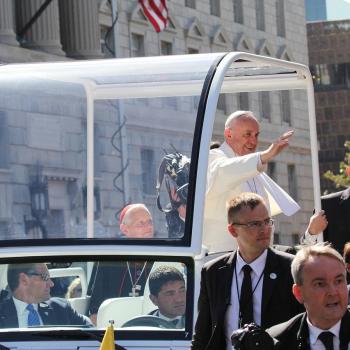THE QUESTION:
Where do major U.S. religious groups stand on the contentious abortion issue?
THE RELIGION GUY’S ANSWER:
If the U.S. Supreme Court enacts that draft decision leaked to Politico, within weeks abortion policies will be returned to the 50 states for decision, adding to contention. Religious groups often consider the claims of the two lives, mother and unborn fetus, rather than this as simply a woman’s “decisions about her own body” per Vice President Harris’s formulation. Here are summaries of some major religious views.
It’s well-known that the Catholic Church, the largest religious body in the U.S. (and worldwide), profoundly abhors abortion, A 1965 decree from the world’s bishops at the Second Vatican Council declares that “from the moment of its conception, life must be guarded with the greatest care,” and calls abortion and infanticide “unspeakable crimes” against humanity. The church’s Catechism says the same and dates this belief back to Christianity’s first century (citing Didache 2:2 and Epistle of Barnabas 19:5).
These statements do not permit any exceptions. But a 1993 ruling from the Vatican office on doctrine, approved by Pope John Paul II, allowed removal of a woman’s uterus (hysterectomy) in “medically indicated” cases that “counter an immediate serious threat to the life or health of the mother” even though sterilization results. A 2019 follow-up defined other rare cases. Since abortion is only the directly intended killing of a fetus, some moral theologians would apply this principle when loss of a fetus is a “secondary effect” of necessary surgery.
America’s Eastern Orthodox hierarchy has joined with Catholic leaders to affirm “our common teaching that life begins at the earliest moments of conception” and is “sacred” through all stages of development. However, America’s 53-member Assembly of Canonical Orthodox Bishops acknowledges “rare but serious medical instances where mother and child may require extraordinary actions.”
At the opposite end of the spectrum, the Unitarian Universalist Association (UUA) advocated nationwide abortion on demand fully a decade before the Supreme Court’s Roe v. Wade liberalization, stating that limitations are “an affront to human life and dignity.” It specifically endorsed abortion rights in cases of “grave impairment” of the mother’s “physical or mental health,” a child’s “serious physical or mental defect,” rape or incest, or any “compelling reason — physical, psychological, mental, spiritual or economic.”
The largest U.S. Protestant body, the Southern Baptist Convention, issued a pre-Roe resolution supporting broadly defined permission in cases of “rape, incest, clear evidence of severe fetal deformity” or damage to a mother’s “emotional, mental, and physical health.” The denomination later shifted rightward on doctrinal and moral matters and its 2018 resolution affirms “the full dignity of every unborn child” and denounces abortion “except to save the mother’s physical life.”
In another typical evangelical Protestant policy, the Assemblies of God urges protection of each life from conception, and deems abortion “morally unacceptable” for birth control, gender selection, or “elimination of the physically and mentally handicapped,” but accepts it in “exceedingly rare” cases of likelihood the mother will die.
Turning to less conservative “mainline” Protestants, the United Church of Christ, like the UUA, advocated repeal of laws against abortion even before Roe v. Wade. Several other denominations joined non-Orthodox and “communal” Jewish agencies and the UUA in the Religious Coalition for Abortion Rights (later renamed Religious Coalition for Reproductive Choice) to lobby for women’s unimpeded choice. This alliance filed a brief in the case the Supreme Court is now deciding but, oddly, no individual Protestant denomination provided the high court an explanation of its liberal religious rationale.
Two agencies of the largest “mainline” body, the United Methodist Church, helped establish the Religious Coalition, but in 2016 left the coalition and withdrew its longtime endorsement of the Supreme Court’s “legal right to abortion.” The UMC recognizes “tragic conflicts of life with life that may justify” abortion. It opposes late-term abortion except for danger to the mother’s “physical life” or “severe fetal anomalies incompatible with life.”
The large African-American Methodist and Baptist denominations did not join the Religious Coalition and have not actively united behind either side on the abortion debate. But the Church of God in Christ, the largest Black religious body (in fact the largest U.S. Black organization of any type) believes such “killing of the innocent” violates the Bible, says the “industry of abortion” is “heinous,” regards abortion as “genocide” and likens Roe v. Wade to the Supreme Court’s infamous Dred Scott and “separate but equal” decisions. It urges believers to actively rescue “preborn children” by aiding pregnant women, crisis pregnancy centers, and adoption agencies.
Among other “mainline” denominations, the Evangelical Lutheran Church in America believes “human life in all phases of its development is God-given and, therefore, has intrinsic value.” However, abortion can be “morally responsible” with a “clear threat” to the mother’s physical life, with rape or incest, or “extreme fetal abnormality.” Prior to viability, laws should reflect that, with public funding for low-income women. The conservative Lutheran Church – Missouri Synod specifies only the mother’s life exception.
The Presbyterian Church (USA) says abortion can be “morally acceptable,” though not required, as a “last resort.” “Possible justifying circumstances” include rape, incest, when “the physical or mental health” of mother or child is “gravely threatened,” or with “severe physical or mental deformity.” It affirms “the ability and responsibility” of women to make the choice.
The Episcopal Church believes “all human life is sacred from its inception” so abortion “should be used only in extreme situations” and not for “family planning, sex selection, or any reason of mere convenience,” and expresses “grave concern” about late-term procedures. The church states “unequivocal opposition” to governmental limits on women’s choice.
Seventh-day Adventist Church leaders’ “guidance” says “abortion should be performed only for the most serious reasons.” Examples are “significant threats” to the mother’s life, “serious jeopardy to her health,” “severe congenital defects” of the fetus, rape, or incest. The final decision is up to the mother, who should not be coerced either to give birth or to abort.
The Church of Jesus Christ of Latter-day Saints, formerly known by the “Mormon” nickname, teaches that members “must not submit to, perform, encourage, pay for, or arrange” abortions. “Exceptional circumstances may justify” it, although “not automatically,” as with incest, rape, “serious jeopardy” to the mother’s “life or health,” or “severe defects” such that the baby cannot survive beyond birth.
In Judaism, the rabbis of the Reform branch advocated liberalization in 1967 to protect a mother’s broad physical or emotional health or with rape or incest, and subsequently came out against all legal restrictions. Later, Conservative Judaism’s rabbinate also endorsed full legal choice, and affirmed abortion to prevent “severe physical or psychological harm,” or when the fetus is “severely defective.” Orthodox Judaism strongly opposes abortion, with some variation in individual cases, but interprets biblical Exodus 21:22-25 to give preservation of the mother’s life priority over unborn life in cases of conflict.
The Islamic Medical Association of North America states that the faith prohibits “elective abortion of a viable fetus in a healthy mother.” Though biological “life begins at conception,” some scholars differentiate that from “ensoulment,” defined in Hadith teachings at either 40 or 120 days. Thus Muslim doctors allow abortion prior to 120 days if the mother might die or face “serious deterioration of her health, both medical and mental” or the fetus has “lethal malformations not compatible with extra-uterine life.” Rape or incest may also be justifications before the 120th day. Internationally, a Muslim World League fatwa permits abortion within 120 days to protect the mother’s life or if the fetus has a serious congenital anomaly.
These official religious teachings are not necessarily what individual members of a faith think. See current polling on U.S. populations here: www.getreligion.org/getreligion/2022/5/10/while-polls-show-ambivalence-scotus-striking-down-roe-would-let-each-state-decide/.












